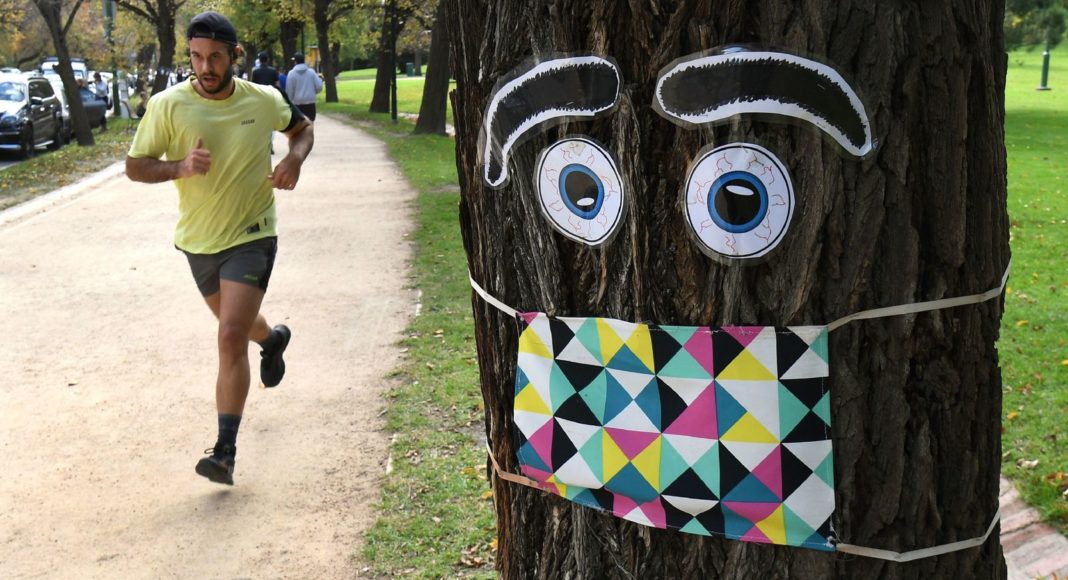Australia has set out plans to lift the nation’s lockdown and restart its economy by July in a three-stage process as cases of coronavirus fall.
The country imposed tough social distancing restrictions in March, which, together with the closure of its borders, are credited with drastically slowing the number of new infections of COVID-19.
With fewer than 20 new cases of coronavirus being recorded each day, Prime Minister Scott Morrison said Australian states and territories had agreed a roadmap to remove most of the curbs.
Image:
The restrictions have had a devastating impact on the economy
Using an Australian word for a duvet, Mr Morrison said: “You can stay under the doona forever. You’ll never face any danger.
“But we’ve got to get out from under the doona at some time.”
He said the states will set their own pace in easing coronavirus restrictions.
Each step will likely be separated by a four-week transition.
Several states, including Queensland and South Australia, said they would ease restrictions from Monday.
The country’s most populated states, New South Wales and Victoria, which have the most COVID-19 cases, said relaxing restrictions would not begin for at least several more days
Despite the staggered easing, Mr Morrison warned the country should still expect further outbreaks. Australia has had fewer than 7,000 confirmed cases of COVD-19 and fewer than 800 people are still ill with the disease.
Almost 100 people have died.
Under the first stage of the plan, restaurants and cafes currently limited to takeaway services will be allowed to reopen, but with a maximum of 10 customers at a time.
Australia’s Chief Medical Officer Brendan Murphy said: “Step one is tentative, baby steps into normalisation.”
If no major outbreaks are recorded states and territories will move to stage two where gyms, cinemas and galleries will be allowed to re-open, although businesses will only be able to have 20 customers at a time.
At this point, states that have closed their borders would start to allow some interstate travel, Mr Morrison said.
When implemented, stage three will allow gatherings of up to 100 people, allow staff to return to their offices and see the re-opening of nightclubs.
All interstate travel will be allowed, along with some limited international travel, including flights between Australia and New Zealand.
International students would also potentially be allowed to return to Australia, but would face two weeks in quarantine.
While the lockdown restrictions have successfully kept a lid on the outbreak, they have had a devastating impact on the economy.
Treasurer Josh Frydenberg estimated the measures are costing £2.1bn a week.
Image:
States will set their own pace in easing coronavirus restrictions
Australia’s central bank has predicted the country is facing its biggest economic contraction on record, despite pledges from it and the government of £168bn in support to cushion the economic blow.
Despite the government subsidising the wages of about six million Australians that keeps them out of unemployment statistics, about 10% of the country’s workforce is also expected to be without a job this year.
However, Mr Morrison, said once the three-stage process is implemented, his government expects about 850,000 people will return to work.
Elsewhere, the number of new coronavirus cases in Russia rose by more than 10,000 for the sixth day running.
It brings the number nationwide to 187,859, while the number of deaths recorded stands at 1,723.
And in Germany, a survey found a third of people expect to curb their future spending, while the same proportion expect to be financially worse off over the next 12 months as a result of the pandemic.
The poll published by GfK market research group also suggested a quarter of Germans had cancelled their holidays.




